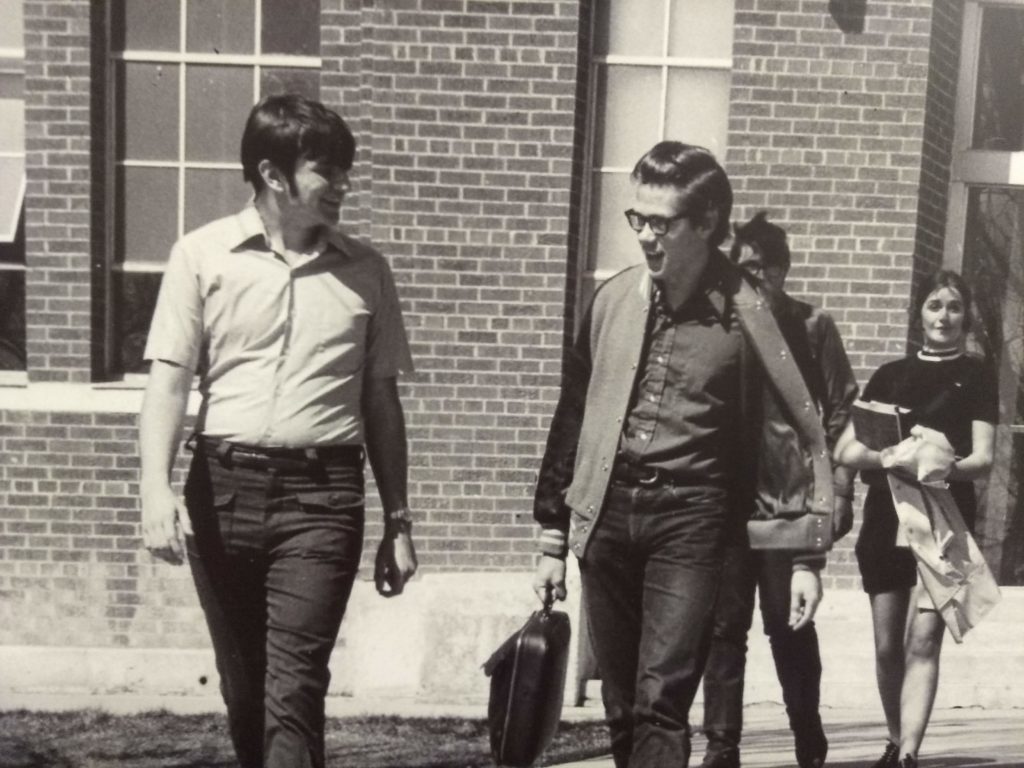Meaning and purpose are part of “Becoming,” one of the three aspects of living a happy and abundant life. I define becoming is engaging in pursuits that bring inner fulfillment. It is nourishing our hearts and souls and living in a way that brings meaning to our lives. I want to talk about finding your purpose in this blog post. Research shows that people who are happy report a greater sense of purpose in their personal and professional lives.
That makes sense, right?
Creating Cultures that Unleash Potential
I co-founded and, for many years, owned a company called the Center for Organizational Design. Our stated purpose was to create “high performing organizations” which we defined as an organization which achieved outstanding results by making each person a contributing partner in the business.
In other words, we wanted to unleash the inner motivation of people and take advantage of their natural intelligence and creativity by designing organizations that encourage people to add value rather than merely comply. We didn’t just want to design more efficient companies but create cultures that worked better for people, that allowed people autonomy and decision-making authority to do meaningful work.
Most People Feel Disengaged
I share this with you because most people do not feel like they do meaningful work. There are many surveys that show that around 80% of people are unhappy in their jobs and feel like their efforts don’t make much difference.
For example, in recent years Gallup has conducted detailed research into how employees feel about their work. They have surveyed millions of workers in 142 countries. Here is what they have found:
- 13% of all people said they were “engaged” or enthusiastic and making what they considered to be a meaningful contribution to their jobs.
- 63% said they were not engaged meaning they were simply going through the motions of work, putting in their time but lacking passion about what they were doing.
- 24% said they were actively disengaged, meaning not only unhappy but actively resisting or undermining the goals of the company.
This means that 87% of people hate or dislike their jobs compared with only 13% who enjoy and find meaning in what they do. Pretty startling numbers.
These numbers not only mean that people are unhappy but also help us understand why anxiety, depression, and addictive behaviors have become such an escape from an unpleasant life.
For many years we were about changing the cultures at work so that people felt like they were making a meaningful contribution. We wanted them to find purpose in their day-to-day activities and we had a lot of success doing so. But I was fortunate to be a consultant who could work directly with top leaders to make these changes inside an organization. Unfortunately, most people don’t have this leverage.
Stop Waiting
So what can you do if you find yourself in this situation?
My first piece of advice would be to stop waiting for your boss, organization, or even life circumstances to change. You may wait a long time. Waiting doesn’t work and it also puts responsibility for your well-being and happiness outside you onto other people. More important is that you take your destiny into your own hands and decide what you can do to bring greater meaning into your own life.
Finding Purpose-A Lesson from Victor Frankl
At the heart of this is living according to a sense of purpose. Viktor Frankl is the well-known Austrian, Jewish psychiatrist who was imprisoned in Auschwitz during the Second World War. In his famous book Man’s Search for Meaning, he noted that many people in the camps simply gave up the will to live. They’d disengage entirely from camp life by curling up into a fetal position and slowly die. He noted that others not only survived but thrived and, in his words, attained “virtual saintliness.” According to Frankl, those who thrived had a purpose, something to live for that helped them transcend their hellish circumstances.
Different Ways of Responding
Likewise, today, I would suggest that people who feel the greatest fulfillment are engaged in a purpose or cause. Of course, there are different ways of finding a purpose. Some may seek to change their employment to be more aligned to their values, interests or talents. More people are likely to stay in the same job but may find ways of finding meaning outside work through various forms of engagement or volunteer work that brings them fulfillment. Others may stay in their employment and find ways to redefine what they do so they feel more fulfilled.
Let me be clear that I’m not suggesting that you have to give up what you’re currently doing in search of some life-altering cause. Chances are that you are already doing something that makes a difference in the lives of others. How can you give it a different spin by thinking and talking about it in a way that feels more like a purpose, something which actually motivates and inspires you? There is little that will bring more fulfillment than knowing you are involved in a meaningful cause.
The Three Stonecutters
It makes me think about the story of the stonecutters. A man was walking down a country road and came upon a stonecutter. He asked him, “What are you doing?” The stone cutter replied, “I’m making a living.” The man continued down the road a bit further and came upon a second stonecutter. “What are you doing?” The stonecutter replied, “I’m becoming the best stonecutter in the country.” Walking down the road a little further, the man came upon a third stonecutter. “What are you doing?” he asked. “I’m building a cathedral,” the stonecutter replied.
All three were doing the same job but how they thought about their work differed and that made all the difference.
I think of a story of a waitress who was bored with her job until she realized that one of her talents was to make people feel better. She brought that to her job and became much happier in her work.
Or, I think of a story about President Kennedy as he toured NASA in the early 60s. He saw a janitor off in the distance and walked over to speak with him. “What do you do here?” Kennedy asked. Without hesitation the man replied, “I’m putting a man on the moon.”
How we frame our work makes all the difference. Can you find your purpose by framing your work in a more creative way?
My Experience
(Yup. That’s me on the right. How about all that hair?)
I had this experience back in college. I had been elected to an office in student government and my initial reaction was “Oh, wow, I didn’t expect this. Now what?” Initially, the position felt rather onerous as I delved into the various tasks and responsibilities associated with it.
But after a time, I began taking ownership of my new role. I shifted my thinking from “What does this position require of me?” to “How can I use this opportunity to make a difference to my fellow students?” A vision began to emerge and I became increasingly excited as I explored possibilities (not tasks) and the implications of what I wanted to accomplish. The year became an exciting experiment in which we redefined our purpose, as a student government, from running activities to advancing the development of the “whole” student.
The experience became the best year of my life to that point. I realized what it means to live from a big vision. I learned how vision generates passion, infuses mundane tasks with meaning, converts everyday encounters into rich engagements, and transforms setbacks into opportunities.
As I look back today, I find that these are the happiest moments of my life, those times when I have captured the higher vision of a job or role and acted with clarity about the outcomes I desired, even intended to create.
Acting from this place of clarity and inspiration is not always automatic. It’s easy to fall back to mere duty, a checklist, or going through the motions. But that is the challenge—to move beyond getting by to seeing a huge “why” that will motivate and inspire us to give our all to those we serve. By finding our purpose, life becomes full, productive, and meaningful.
Application
So we could apply this concept to your life. I could invite you to think about an overarching purpose for your life. But I want to narrow your focus.
Think about a current role. It could be in your home and family (mother, father, brother, sister). It might be your job or a particular responsibility within your job. Perhaps it has to do with a position within your community or church.
Now think about possibilities. What is the purpose (the “why”) behind this role? Suppose you carried out this role in a way that made a real difference! What would happen? What would you be doing? Who would be blessed?
Don’t think about challenges and obstacles. Imagine that you could shrink obstacles. You knew you were bigger than challenges. You had the wherewithal to make a really big difference. What would be possible? What could you get really excited about? How could you make this happen?
I invite you to take time to write down your answers to these questions. Reading the questions is not enough. Pondering them is a good beginning. However, if you really want to expand the difference you make in this role, then you need to put something on paper. That act both demonstrates and generates commitment.
Once you’ve jotted down your thoughts, convert them into a purpose statement, not for your life, just this role. This statement could be a single sentence, a paragraph, or bullet points. What is important is that it inspires you and gives you direction about how to fulfill the role in a meaningful way, in a way that will inspire you and make a huge difference to others.
True Joy
George Bernard Shaw once said, “This is the true joy in life, the being used for a purpose recognized by yourself as a mighty one; the being a force of nature instead of a feverish, selfish little clod of ailments and grievances complaining that the world will not devote itself to making you happy.”
Although his words may strike you as a bit humorous or even harsh, Shaw makes a good point. Joy, at least lasting joy, comes from living your purpose. The clearer you are about your purpose, in a given area of your life, the bigger difference you’ll make and more meaning and joy you’ll discover.
So please share a thought. When have your found a sense of purpose in your life? How might you apply this concept to your life today?



Roger, very much aligned with this message. Much of the work we do is focused on facilitating the iner work focused on the life purpose questions (Who amI? Why am I here? Where am I going?) We developed and use a couple of toolos that help our clientele get grounded in the concepts you write about here. Thanks!
Thanks, Jesse. I do see this inner work as an important part of growing in emotional maturity.
Hi Roger, thanks for another wonderful well-said article. I have been following you for over 7 years now and your words are truly inspiring. I see myself growing and so does my parenting style evolve in a good way. Many blessings to you and your family.
Hi Jun. Thanks for your kind words. I’m glad you like my articles and they’re making a difference in your life. It’s especially gratifying that you’re growing in your parenting. My best to you. Roger